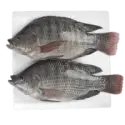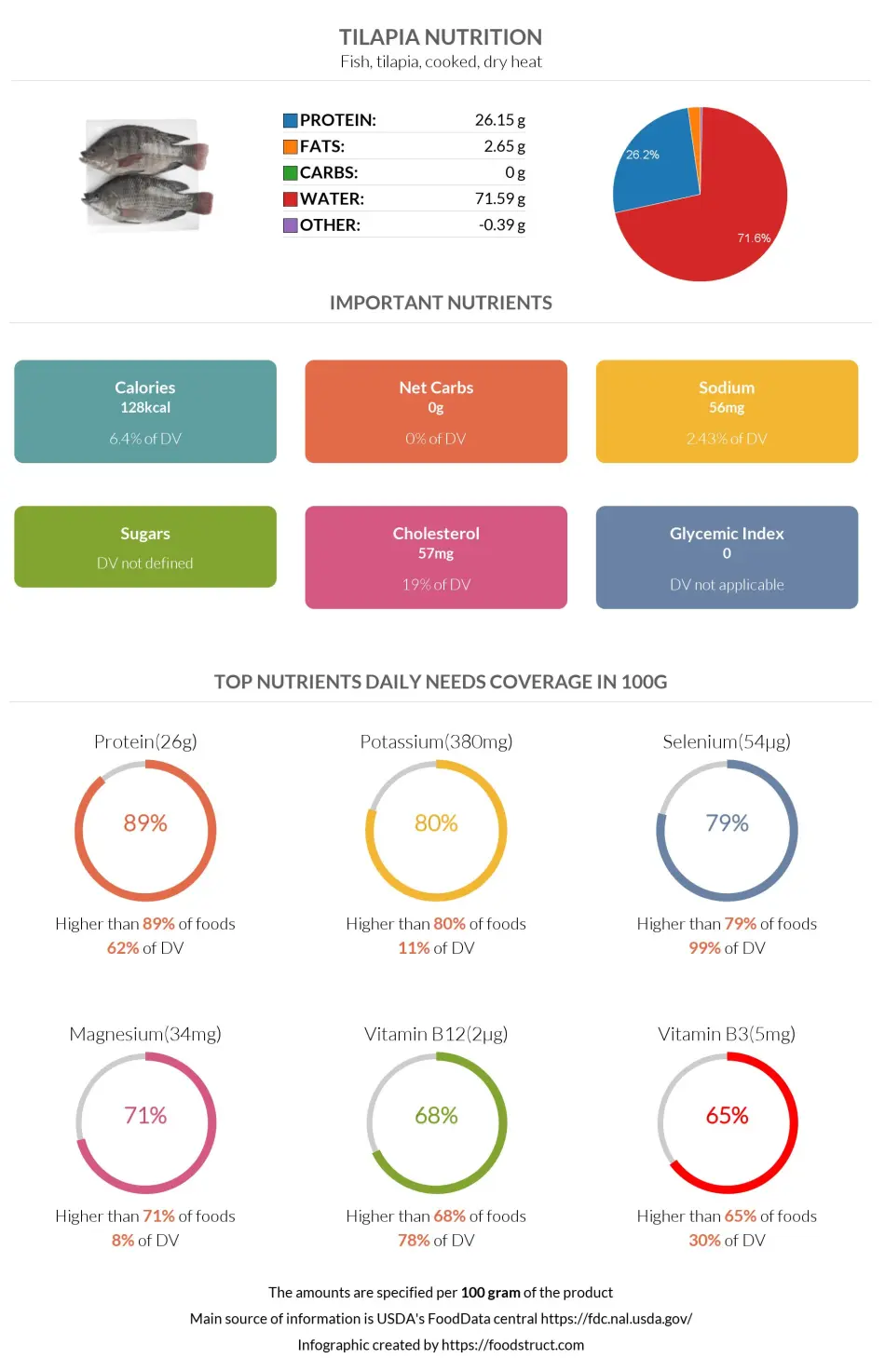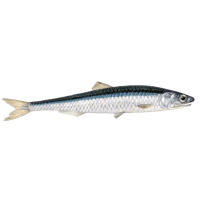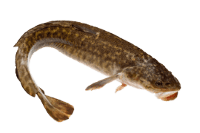Tilapia nutrition facts: calories, carbs, GI, protein, fiber, fats
Fish, tilapia, cooked, dry heat
Top nutrition facts for Tilapia

| Calories ⓘ Calories for selected serving | 111 kcal |
|
Glycemic index ⓘ
Source: *Explanation
Check out our Glycemic index chart page for the full list.
|
0 (low) |
| Net Carbs ⓘ Net Carbs = Total Carbohydrates – Fiber – Sugar Alcohols | 0 grams |
| Default serving size ⓘ Serving sizes are mostly taken from FDA's Reference Amounts Customarily Consumed (RACCs) | 1 fillet (87 grams) |
| Acidity (Based on PRAL) ⓘ PRAL (Potential renal acid load) is calculated using a formula. On the PRAL scale the higher the positive value, the more is the acidifying effect on the body. The lower the negative value, the higher the alkalinity of the food. 0 is neutral. | 11.3 (acidic) |
| Oxalates ⓘ https://www.hsph.harvard.edu/nutrition-questionnaire-service-center/nutrient-tables-download-page/ | 0 mg |
Protein ⓘHigher in Protein content than 89% of foods
Potassium ⓘHigher in Potassium content than 80% of foods
Selenium ⓘHigher in Selenium content than 79% of foods
Magnesium ⓘHigher in Magnesium content than 71% of foods
Vitamin B12 ⓘHigher in Vitamin B12 content than 68% of foods
Tilapia calories (kcal)
| Calories for different serving sizes of tilapia | Calories | Weight |
|---|---|---|
| Calories in 100 grams | 128 | |
| Calories in 1 fillet | 111 | 87 g |
Tilapia Glycemic index (GI)
Source:
*Explanation
Check out our Glycemic index chart page for the full list.
Mineral coverage chart
Mineral chart - relative view
Vitamin coverage chart
Vitamin A:
0µg of 900µg
0%
Vitamin E:
2.1mg of 15mg
14%
Vitamin D:
9.7µg of 20µg
48%
Vitamin C:
0mg of 90mg
0%
Vitamin B1:
0.24mg of 1mg
20%
Vitamin B2:
0.19mg of 1mg
15%
Vitamin B3:
12mg of 16mg
77%
Vitamin B5:
1.7mg of 5mg
35%
Vitamin B6:
0.32mg of 1mg
25%
Folate:
16µg of 400µg
3.9%
Vitamin B12:
4.9µg of 2µg
202%
Choline:
134mg of 550mg
24%
Vitamin K:
2.3µg of 120µg
2%
Vitamin chart - relative view
Macronutrients chart
Protein:
Daily Value: 46%
22.8 g of 50 g
22.8 g (46% of DV )
Fats:
Daily Value: 4%
2.3 g of 65 g
2.3 g (4% of DV )
Carbs:
Daily Value: 0%
0 g of 300 g
0 g (0% of DV )
Water:
Daily Value: 3%
62.3 g of 2,000 g
62.3 g (3% of DV )
Other:
-0.3 g
-0.3 g
Protein quality breakdown
Tryptophan:
692mg of 280mg
247%
Threonine:
3017mg of 1,050mg
287%
Isoleucine:
3184mg of 1,400mg
227%
Leucine:
5324mg of 2,730mg
195%
Lysine:
6042mg of 2,100mg
288%
Methionine:
1999mg of 1,050mg
190%
Phenylalanine:
2741mg of 1,750mg
157%
Valine:
3341mg of 1,820mg
184%
Histidine:
1527mg of 700mg
218%
Fat type information
Saturated fat:
0.82 g
Monounsaturated fat:
0.83 g
Polyunsaturated fat:
0.52 g
All nutrients for Tilapia per selected serving size (1 fillet - 87g)
| Nutrient | Value | DV% | In TOP % of foods | Comparison |
| Vitamin A | 0µg | 0% | 100% | |
| Calories | 111kcal | 6% | 66% |
2.7 times more than Orange
|
| Protein | 23g | 54% | 11% |
9.3 times more than Broccoli
|
| Fats | 2.3g | 4% | 63% |
12.6 times less than Cheese
|
| Vitamin C | 0mg | 0% | 100% |
N/A
|
| Net carbs | 0g | N/A | 75% |
N/A
|
| Carbs | 0g | 0% | 100% |
N/A
|
| Cholesterol | 50mg | 17% | 35% |
6.5 times less than Egg
|
| Vitamin D | 3.2µg | 32% | 39% |
1.7 times more than Egg
|
| Magnesium | 30mg | 7% | 29% |
4.1 times less than Almonds
|
| Calcium | 12mg | 1% | 66% |
8.9 times less than Milk
|
| Potassium | 331mg | 10% | 20% |
2.6 times more than Cucumber
|
| Iron | 0.6mg | 8% | 71% |
3.8 times less than Beef broiled
|
| Sugar | 0g | N/A | 100% |
N/A
|
| Fiber | 0g | 0% | 100% |
N/A
|
| Copper | 0.07mg | 7% | 66% |
1.9 times less than Shiitake
|
| Zinc | 0.36mg | 3% | 73% |
15.4 times less than Beef broiled
|
| Phosphorus | 177mg | 25% | 36% |
1.1 times more than Chicken meat
|
| Sodium | 49mg | 2% | 68% |
8.8 times less than White bread
|
| Vitamin E | 0.69mg | 5% | 50% |
1.8 times less than Kiwi
|
| Manganese | 0.03mg | 1% | 69% | |
| Selenium | 47µg | 86% | 21% | |
| Vitamin B1 | 0.08mg | 7% | 50% |
2.9 times less than Pea raw
|
| Vitamin B2 | 0.06mg | 5% | 74% |
1.8 times less than Avocado
|
| Vitamin B3 | 4.1mg | 26% | 35% |
2 times less than Turkey meat
|
| Vitamin B5 | 0.58mg | 12% | 48% |
1.7 times less than Sunflower seeds
|
| Vitamin B6 | 0.11mg | 8% | 59% |
Equal to Oats
|
| Vitamin B12 | 1.6µg | 67% | 32% |
2.7 times more than Pork
|
| Vitamin K | 0.78µg | 1% | 78% |
112.9 times less than Broccoli
|
| Folate | 5.2µg | 1% | 76% |
10.2 times less than Brussels sprouts
|
| Saturated fat | 0.82g | 4% | 62% |
6.3 times less than Beef broiled
|
| Choline | 45mg | 8% | 65% | |
| Monounsaturated fat | 0.83g | N/A | 65% |
10.3 times less than Avocado
|
| Polyunsaturated fat | 0.52g | N/A | 57% |
78.6 times less than Walnut
|
| Tryptophan | 0.23mg | 0% | 54% |
1.2 times less than Chicken meat
|
| Threonine | 1mg | 0% | 50% |
1.6 times more than Beef broiled
|
| Isoleucine | 1.1mg | 0% | 51% |
1.3 times more than Salmon raw
|
| Leucine | 1.8mg | 0% | 53% |
1.2 times less than Tuna Bluefin
|
| Lysine | 2mg | 0% | 50% |
5.1 times more than Tofu
|
| Methionine | 0.67mg | 0% | 47% |
8 times more than Quinoa
|
| Phenylalanine | 0.91mg | 0% | 52% |
1.6 times more than Egg
|
| Valine | 1.1mg | 0% | 53% |
1.6 times less than Soybean raw
|
| Histidine | 0.51mg | 0% | 65% |
1.3 times less than Turkey meat
|
| Caffeine | 0mg | 0% | 100% | |
| Omega-3 - EPA | 0g | N/A | 42% |
138 times less than Salmon
|
| Omega-3 - DHA | 0.11g | N/A | 35% |
11.2 times less than Salmon
|
| Omega-3 - ALA | 0.04g | N/A | 90% |
203.1 times less than Canola oil
|
| Omega-3 - DPA | 0.05g | N/A | 34% |
2.8 times less than Salmon
|
| Omega-6 - Eicosadienoic acid | 0.01g | N/A | 77% |
Check out similar food or compare with current
NUTRITION FACTS LABEL
Nutrition Facts
___servings per container
Serving Size ______________
Serving Size ______________
Amount Per 100g
Calories 111
% Daily Value*
3.5%
Total Fat
2.3g
3.7%
Saturated Fat 0.82g
0
Trans Fat
0g
17%
Cholesterol 50mg
2.1%
Sodium 49mg
0
Total Carbohydrate
0g
0
Dietary Fiber
0g
Total Sugars 0g
Includes ? g Added Sugars
Protein
23g
Vitamin D
131mcg
16%
Calcium
12mg
1.2%
Iron
0.6mg
7.5%
Potassium
331mg
9.7%
*
The % Daily Value (DV) tells you how much a nutrient in a serving of food contributes to a daily diet. 2,000 calories a day is used for general nutrition advice.
Health checks
ⓘ
Dietary cholesterol is not associated with an increased risk of coronary heart disease in healthy individuals. However, dietary cholesterol is common in foods that are high in harmful saturated fats.
Source
Low in Cholesterol
ⓘ
Trans fat consumption increases the risk of cardiovascular disease and mortality by negatively affecting blood lipid levels.
Source
No Trans Fats
ⓘ
Saturated fat intake can raise total cholesterol and LDL (low-density lipoprotein) levels, leading to an increased risk of atherosclerosis. Dietary guidelines recommend limiting saturated fats to under 10% of calories a day.
Source
Low in Saturated Fats
ⓘ
While the consumption of moderate amounts of added sugars is not detrimental to health, an excessive intake can increase the risk of obesity, and therefore, diabetes.
Source
Low in Sugars
Tilapia nutrition infographic

Infographic link
References
All the values for which the sources are not specified explicitly are taken from FDA’s Food Central. The exact link to the food presented on this page can be found below.


